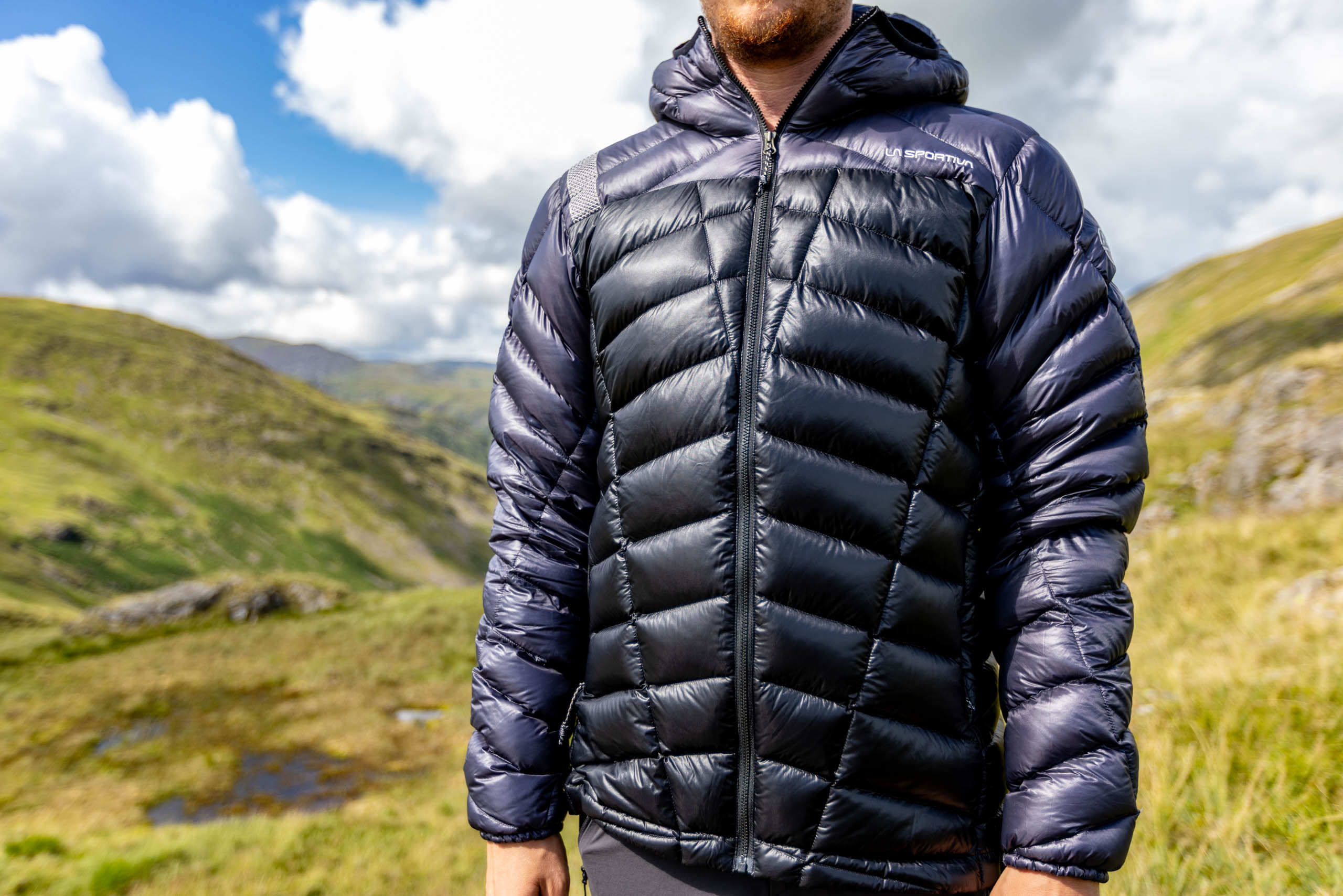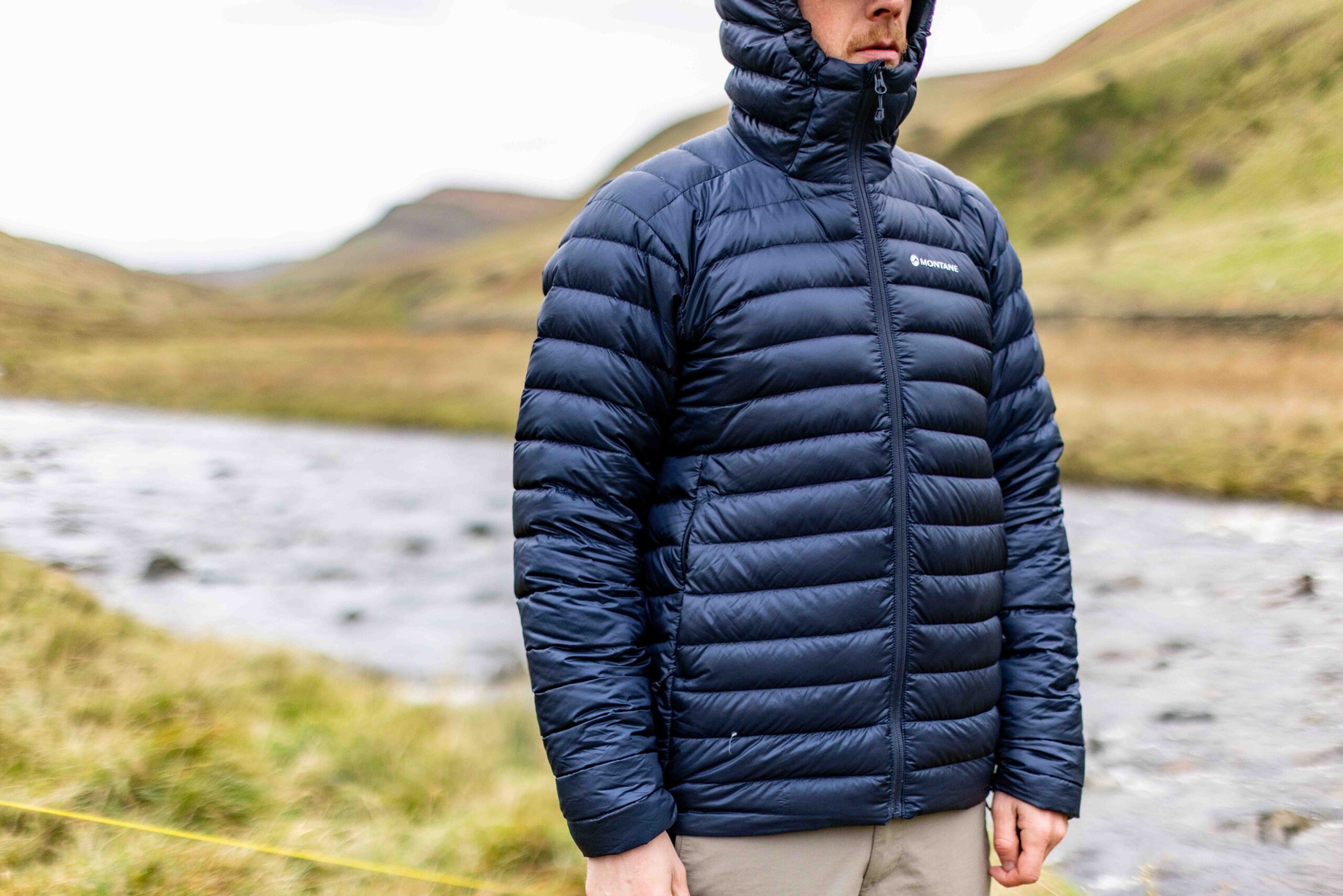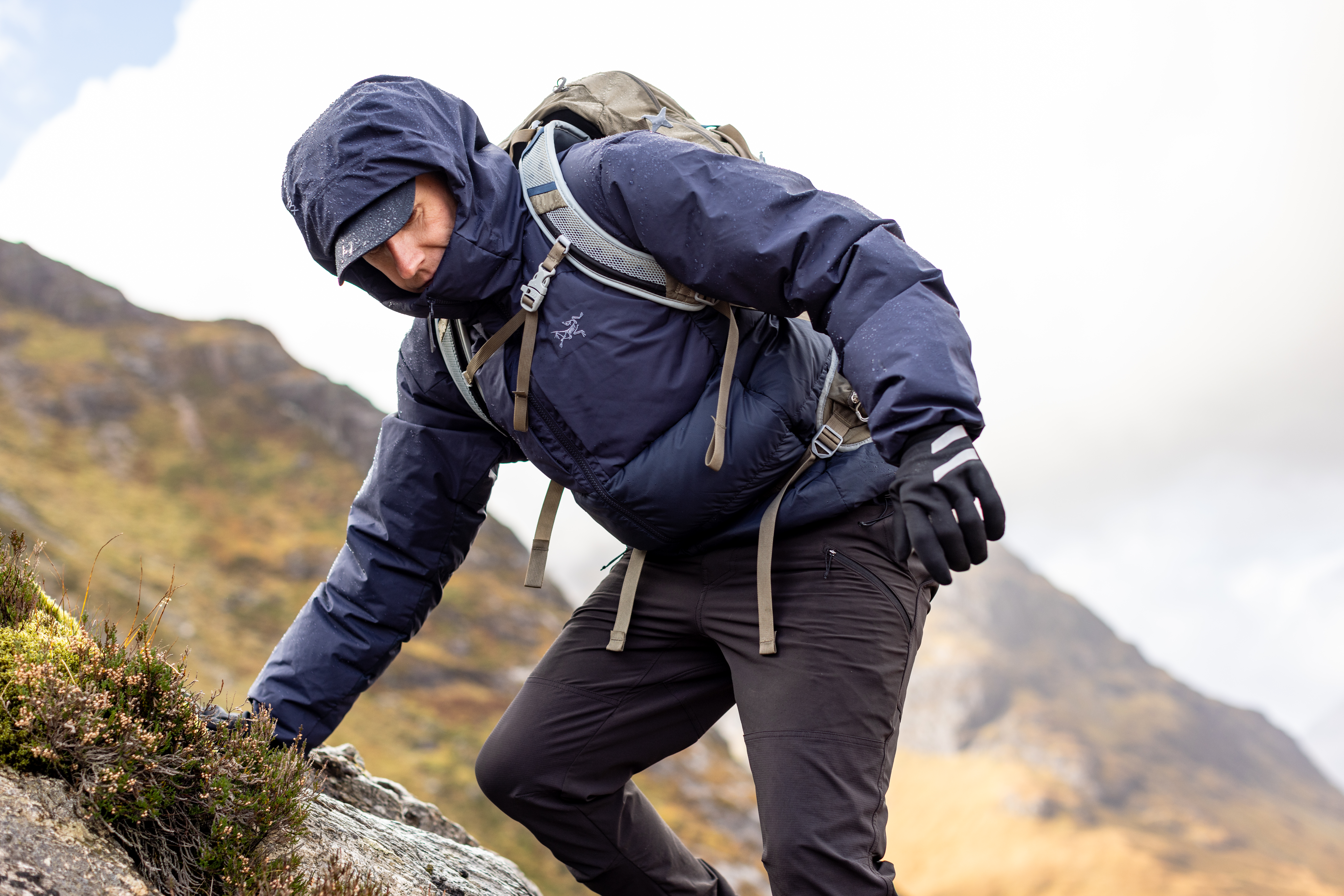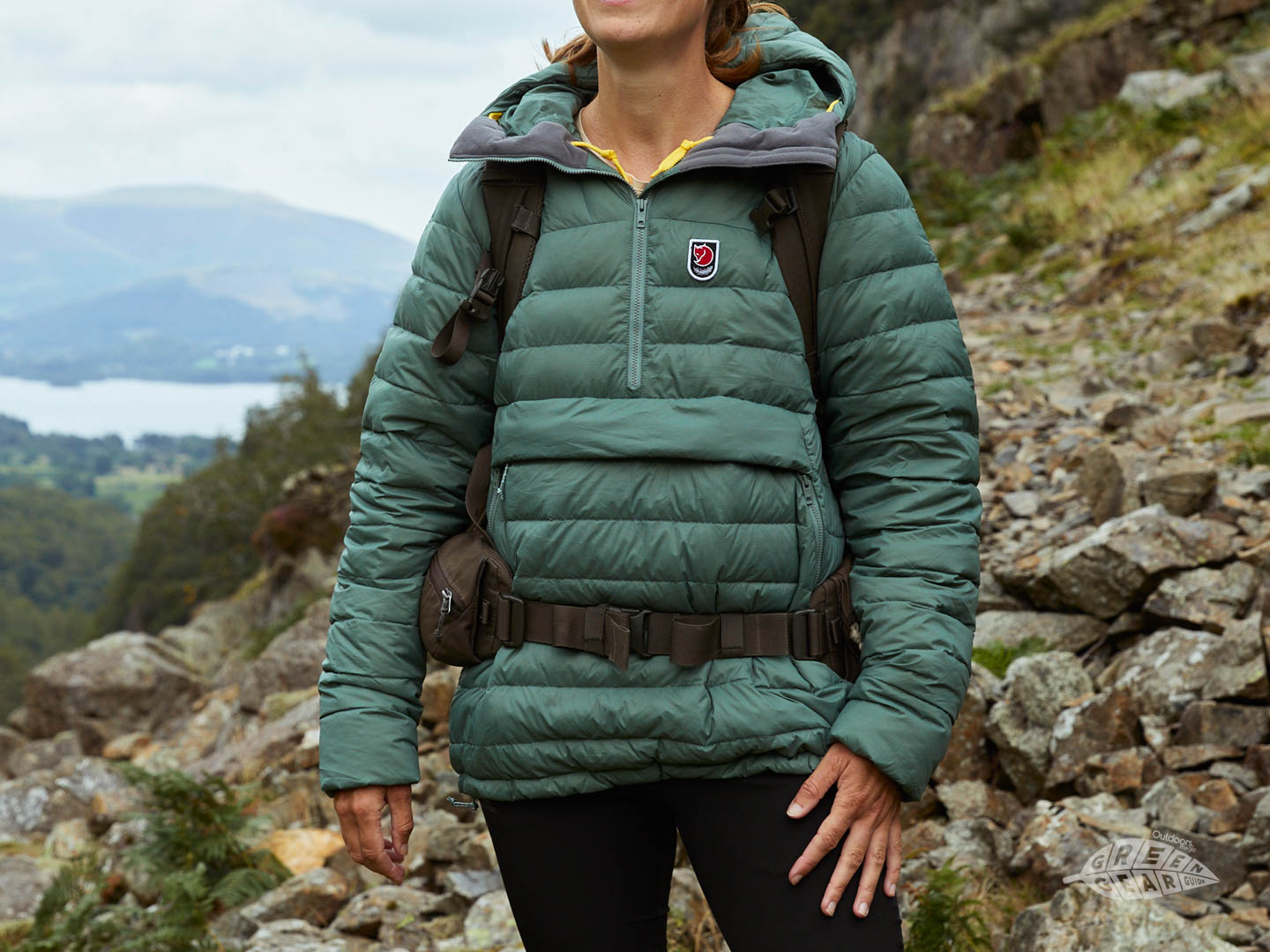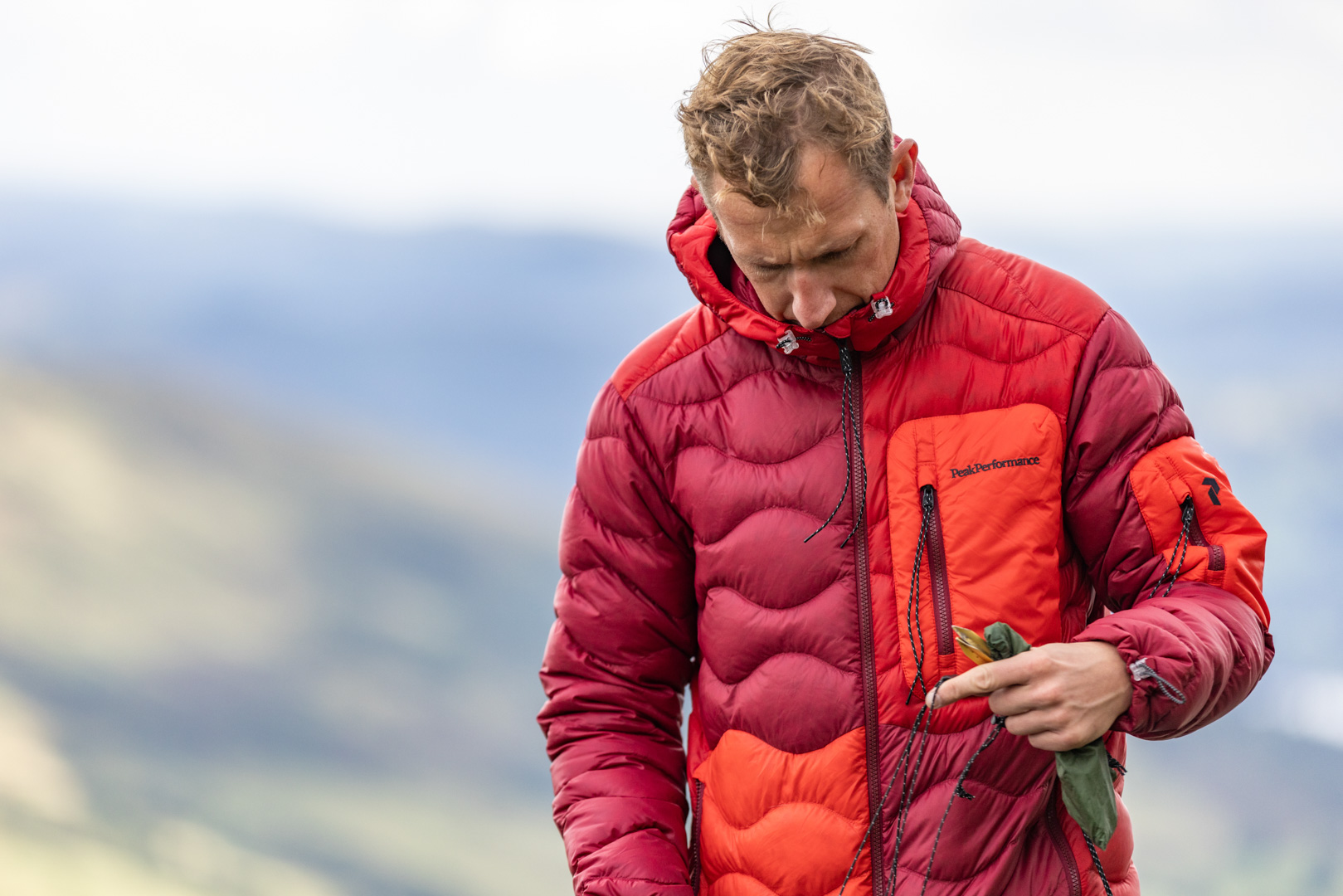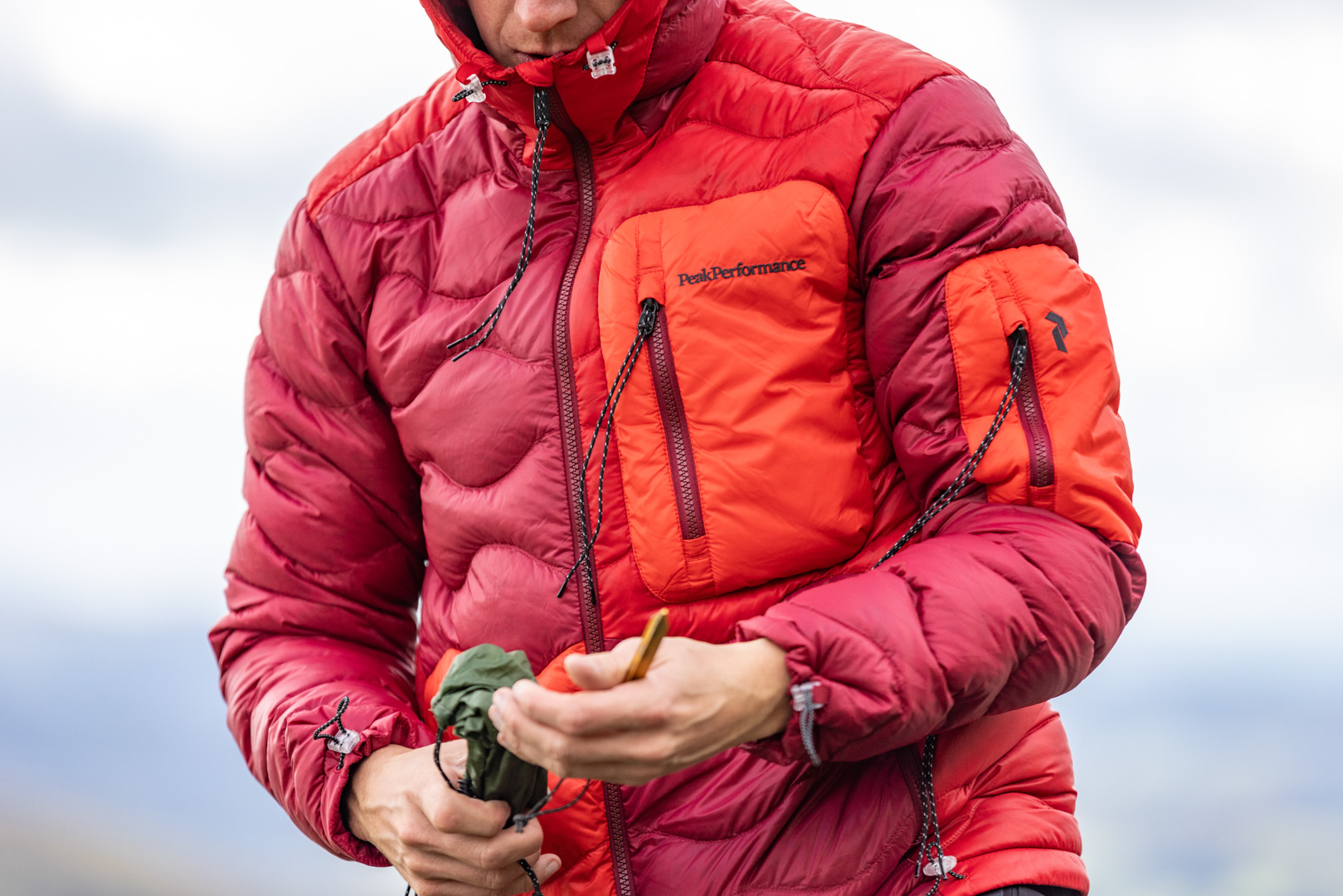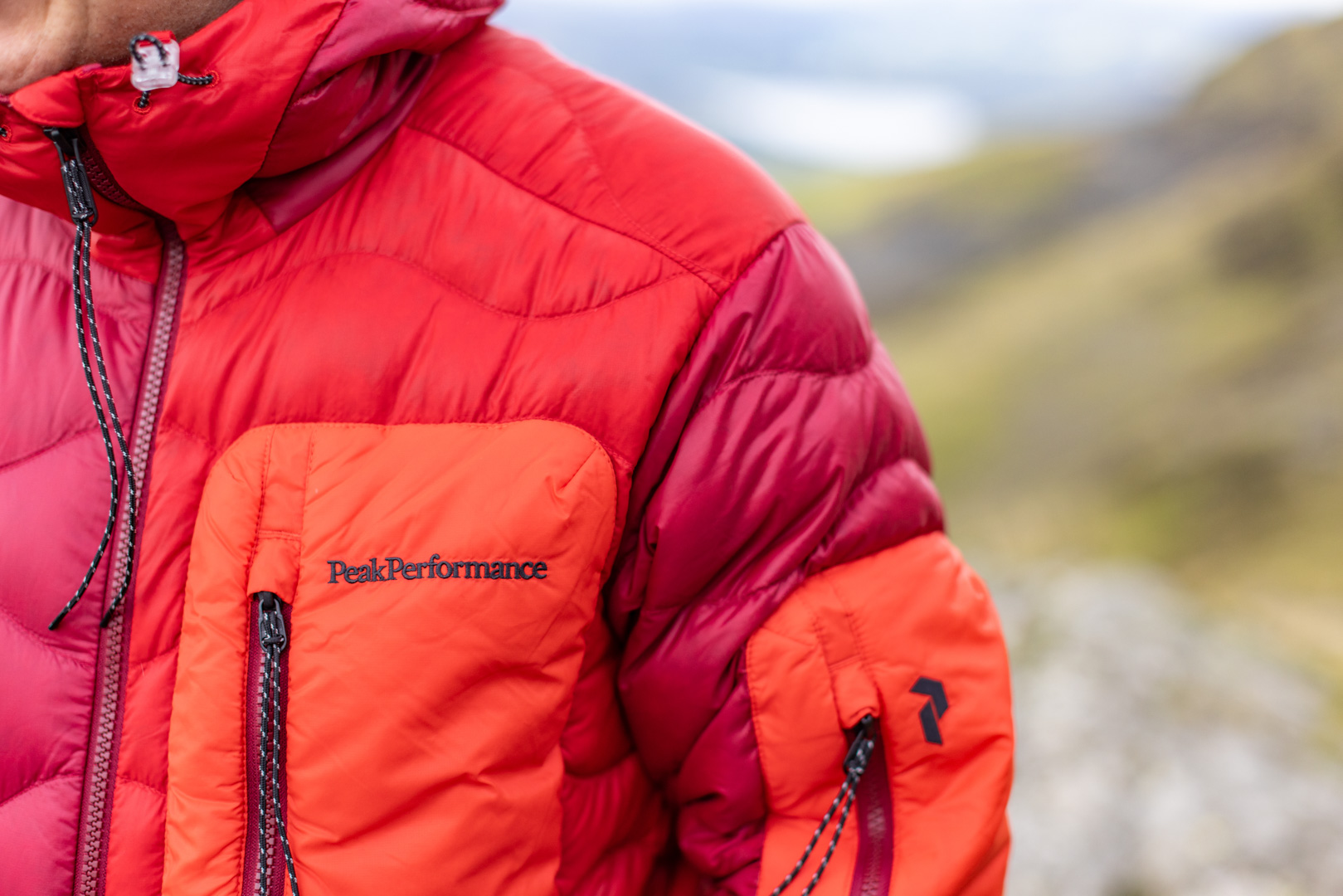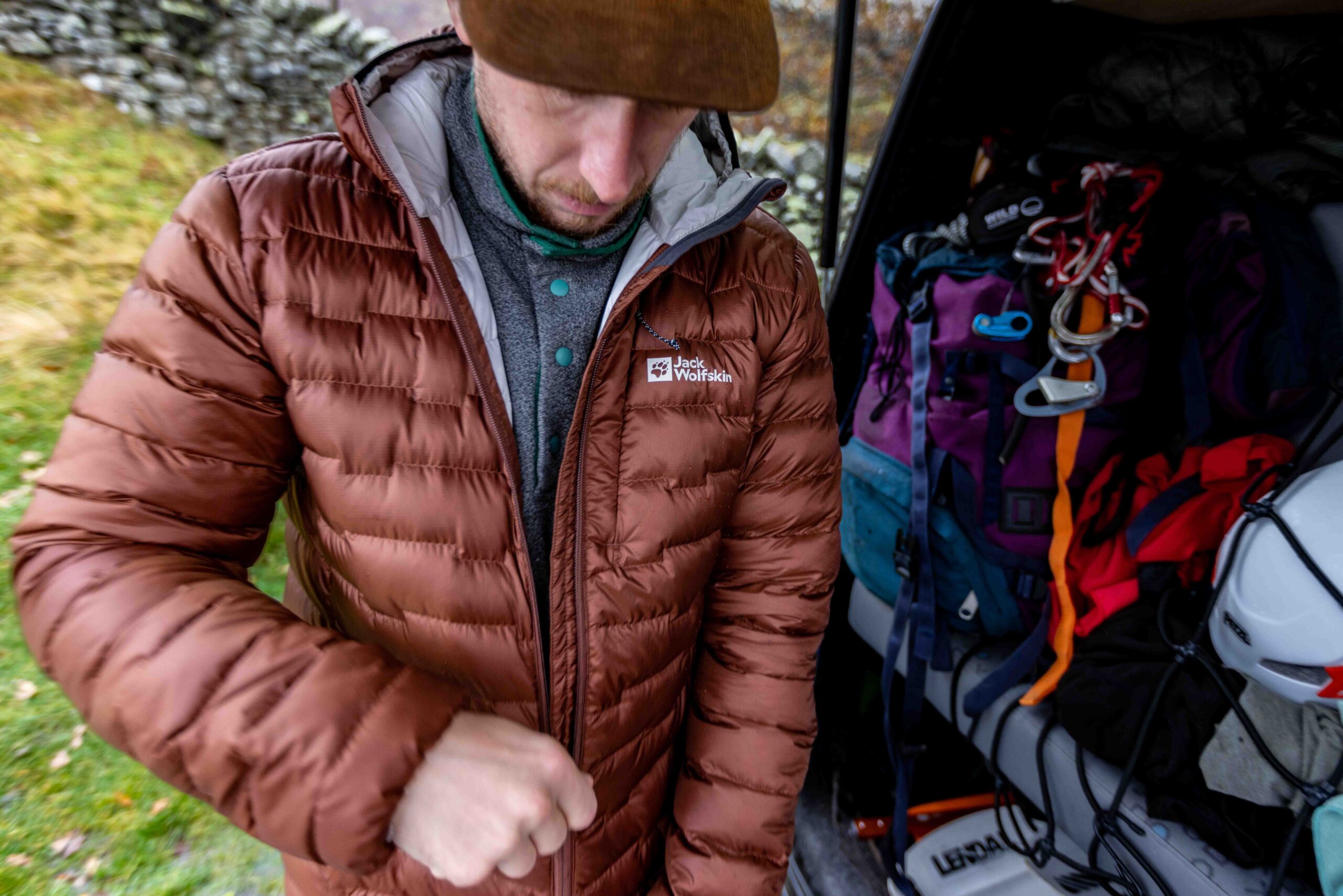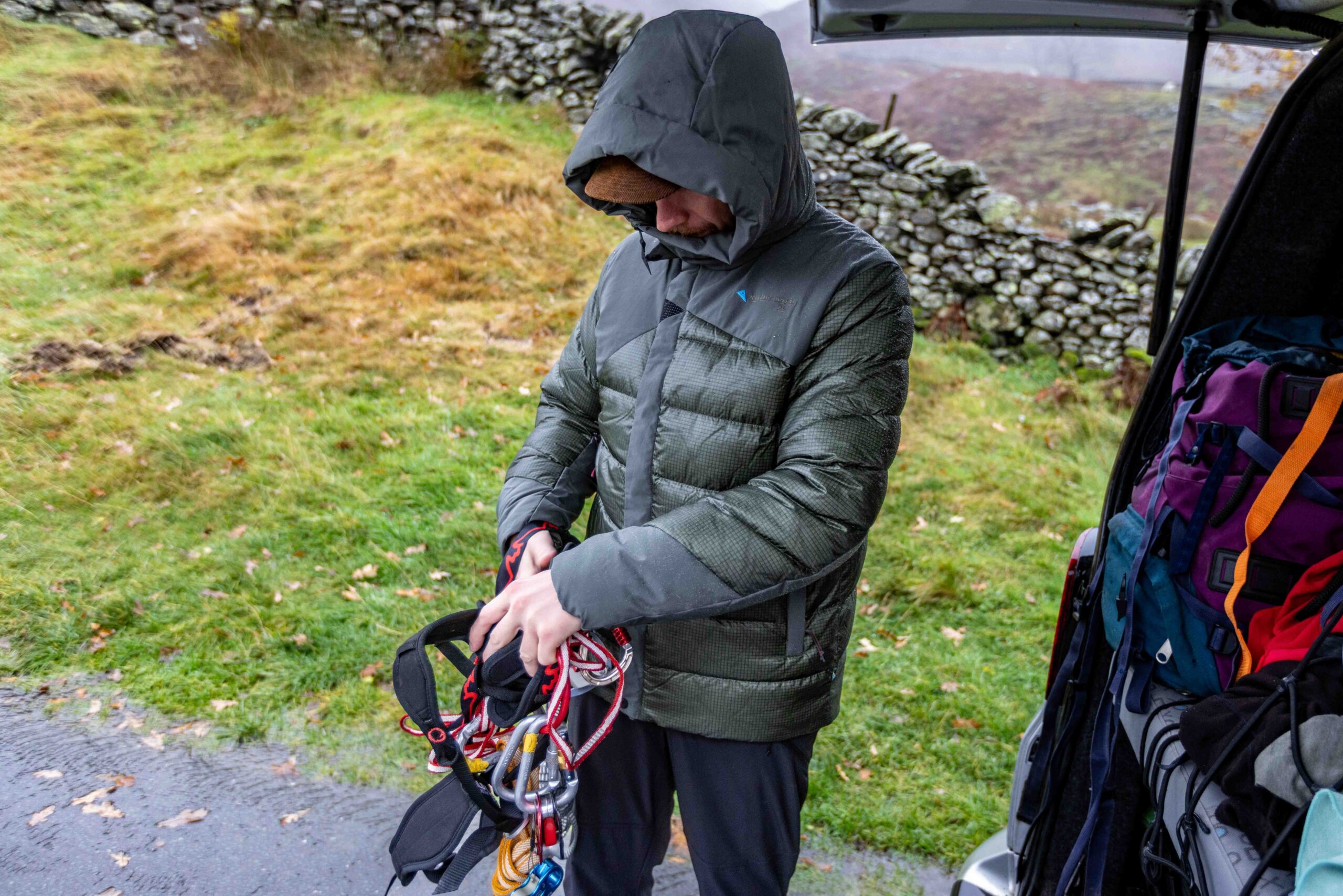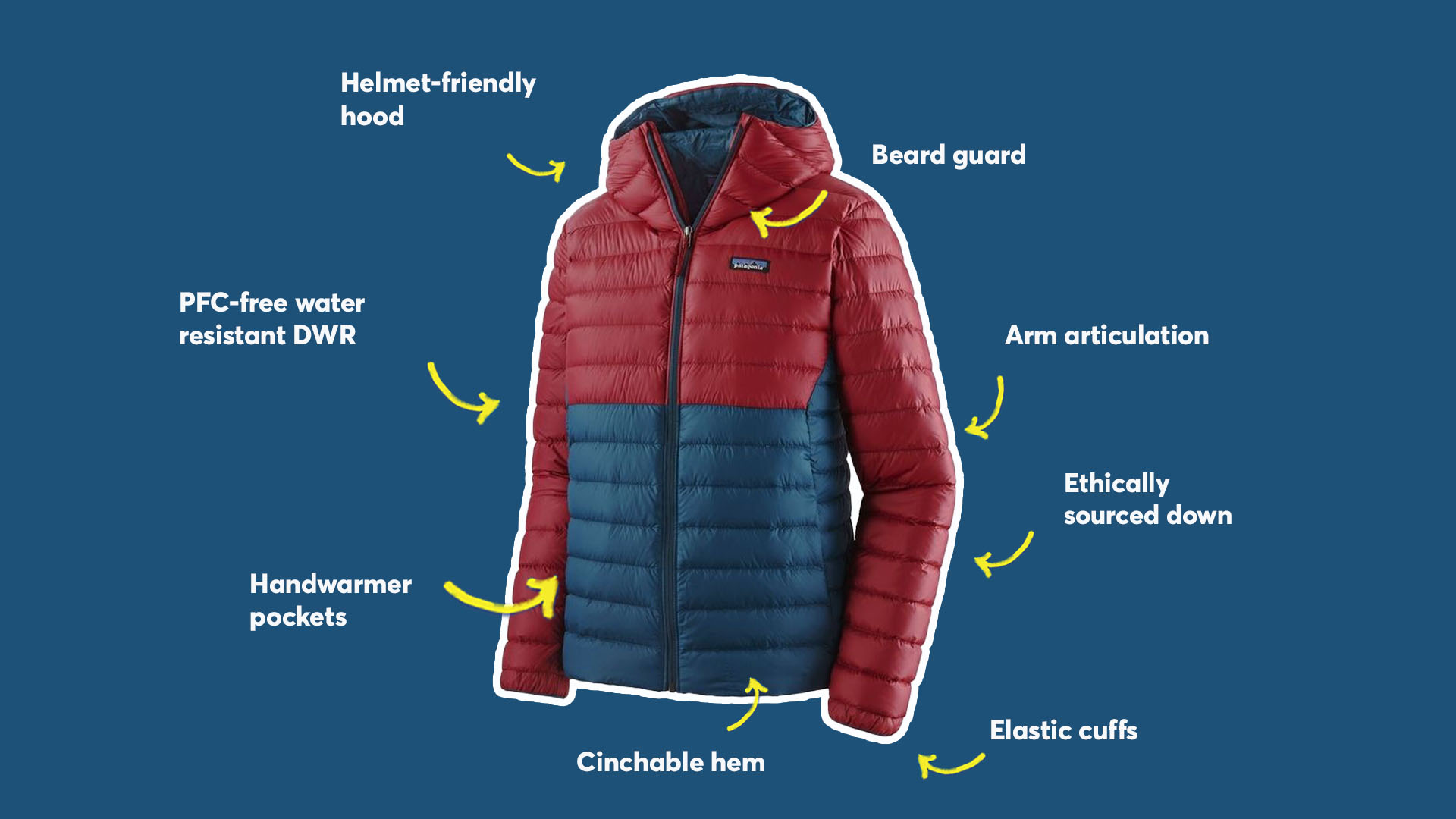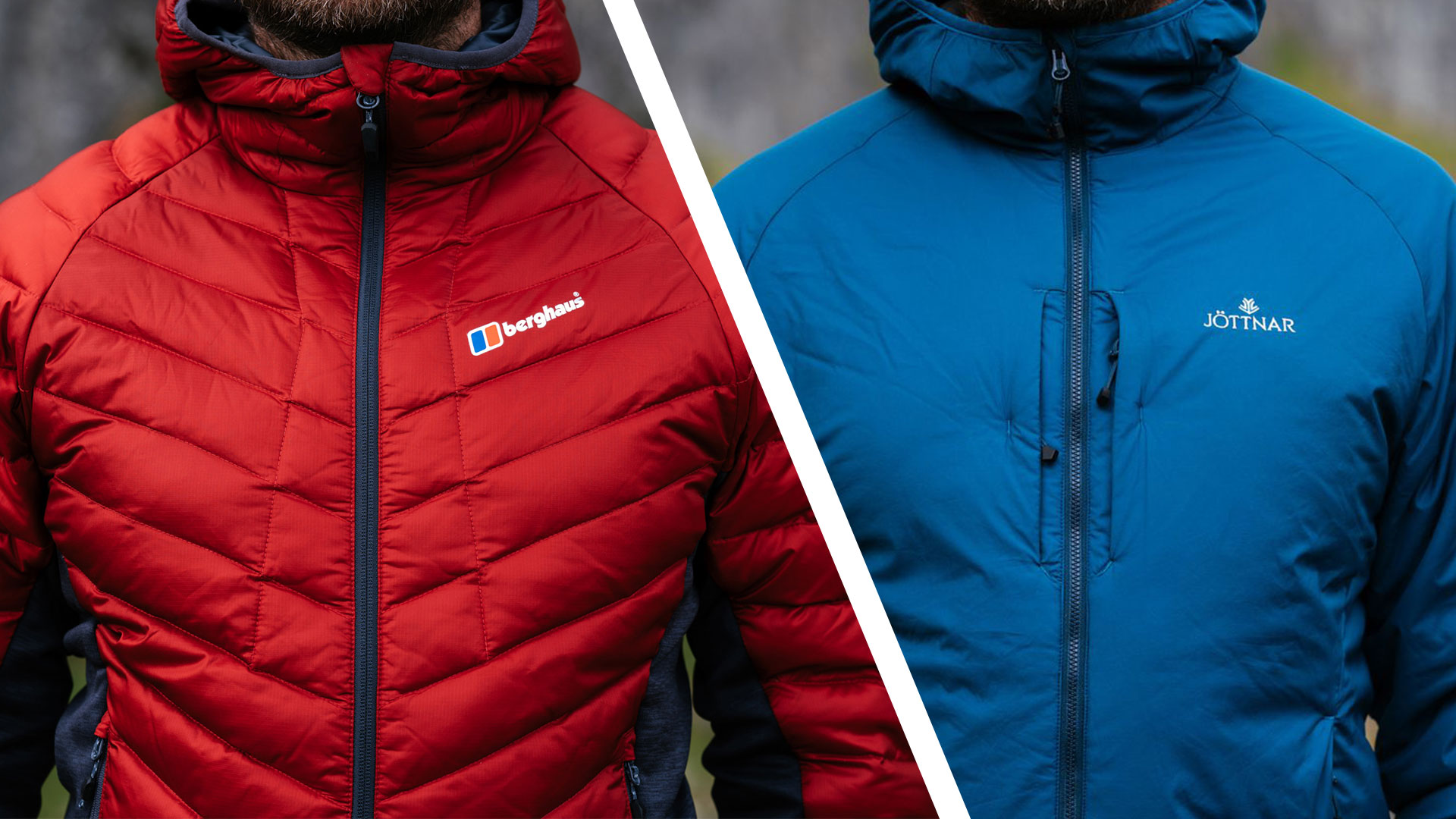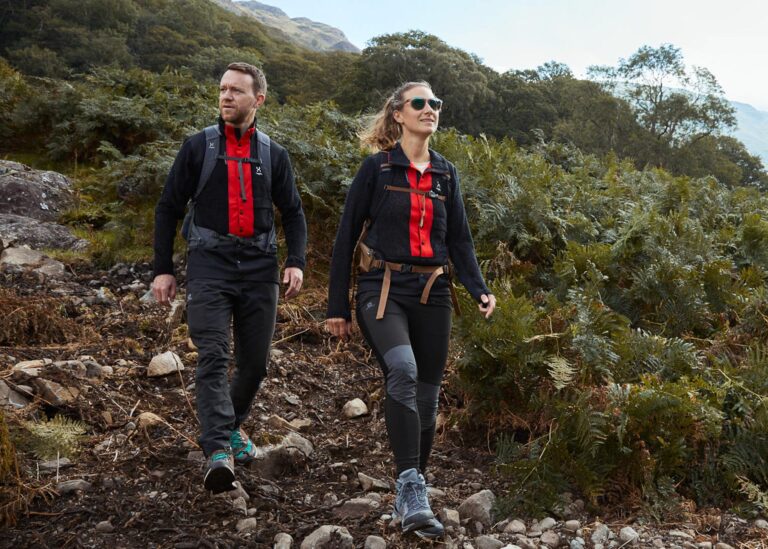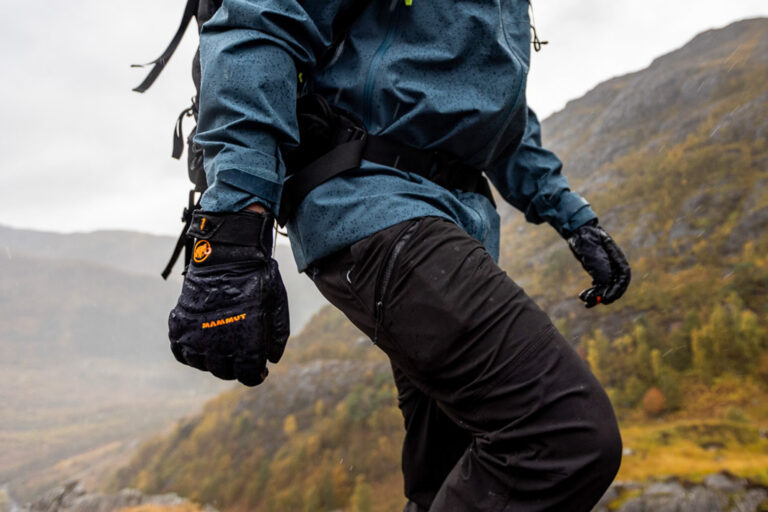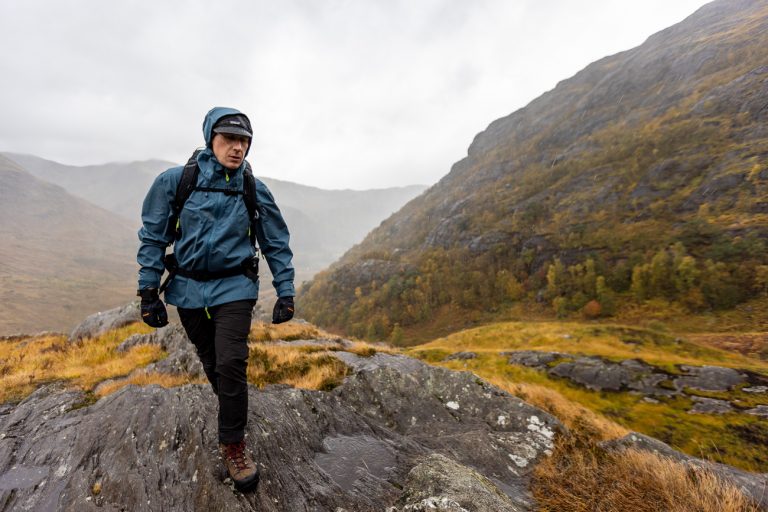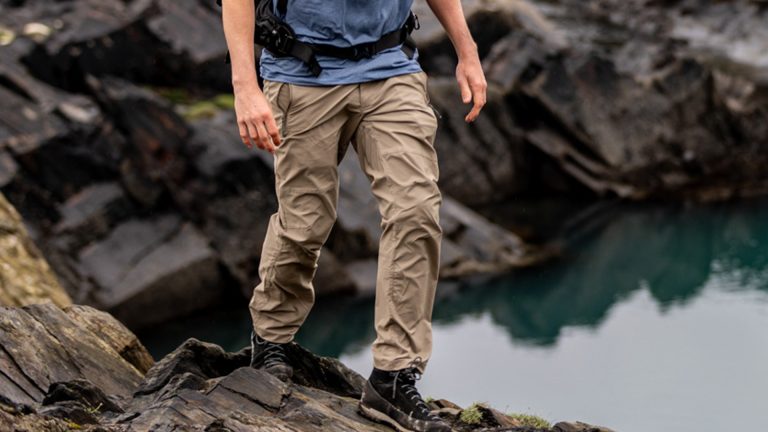Lightweight, warm and very packable, the right down jacket can be a total game-changer, not just for outdoor activity, but for daily life through the colder seasons.
Every year for the last decade, we’ve been testing the latest down jacket releases and curating an on-going list of the best options to help people work out what exactly is the best down jacket for them.
Down jackets are useful for hiking as their warmth-to-weight ratio tends to be much better than any other alternatives. They’re nearly always lighter than knitted or padded wool jackets, polyester fleeces, and jackets that use synthetic fills, though the gap is starting to narrow here, as explained in our list of the Best Synthetic Insulated Jackets.
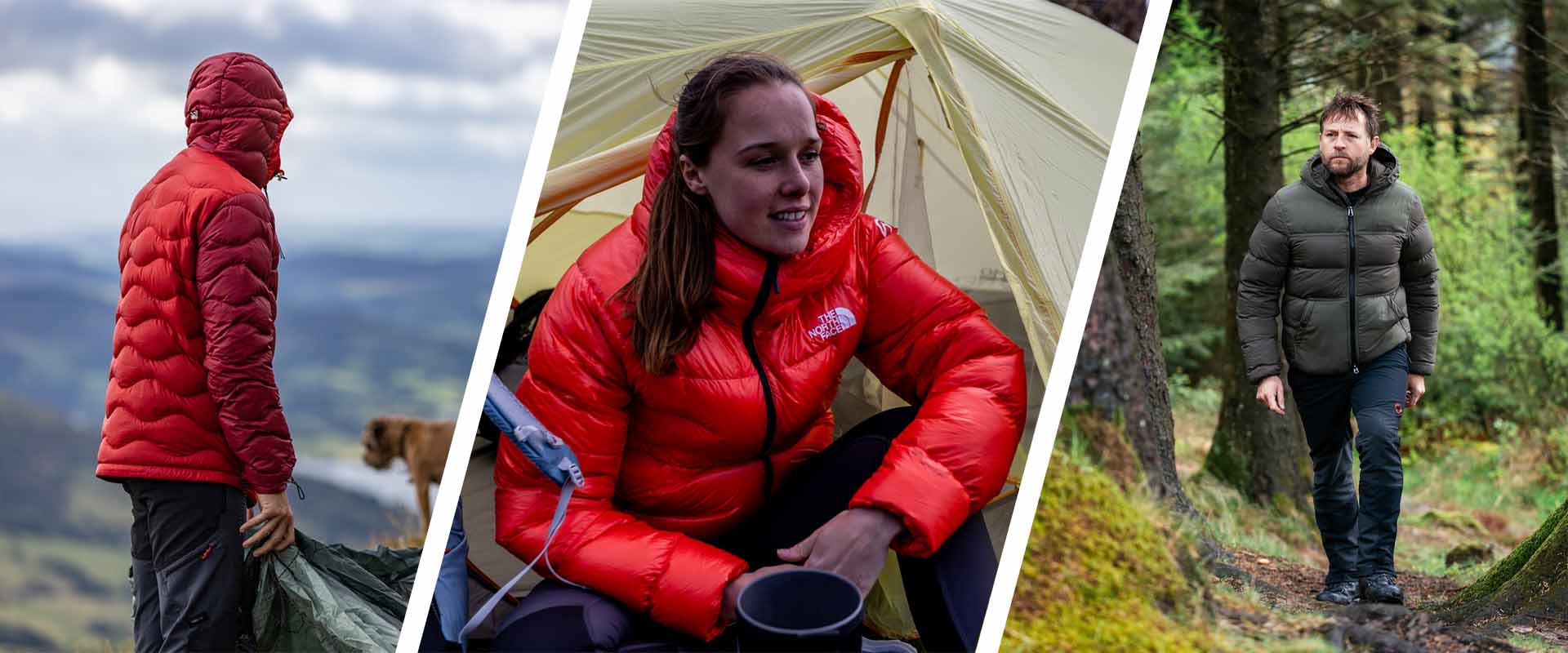
The Best Down Jackets Tested in 2026
Here’s our pick of the best down jackets, all of which we’ve tested by our team over the last few seasons. These are all available in men’s and women’s versions but if you’re looking for a women’s specific option, check out our list of the best down jackets for women.
-
Rab Mythic Ultra Jacket – Most Warm Down Jacket and Best Overall
-
Haglöfs Spitz Down Hoody – Best Women’s-Specific Down Jacket
-
Forclaz MT100 – Best Budget Insulated Jacket
-
Helly Hansen Odin Everdown – Best For Premium Comfort
-
Haglöfs LIM Down Hoody – Best Lightweight Down Jacket for Hiking and Trekking
-
Passenger Ashland – Best Down Jacket for Everyday Use
How We Tested Them
To find the best down jacket, we assessed dozens of different items within the mountains. They were walked in, carried in backpacks, thrown on during windy summit stops and worn for cold evenings while out wild camping. A range of different jackets were looked at; some are made for expedition-style use and others made for less gnarly activities, whether that’s three-season camps or just day-to-day wear. As such, each jacket was used and assessed within the context they were made for.
There are some overarching things we look for in every down jacket: a good warmth-to-weight ratio, durability, loft and longevity. On selection, any products that had expensive price tags needed to have the quality to back up the cost. Any low budget items needed to have the kind of performance that’s needed when out in the hills, when cold and potentially wet conditions are expected. Here are the items that made our final list following our tests.
1. Rab Mythic Ultra Jacket
Our test team deemed this to be the most warm down jacket and best down jacket overall.
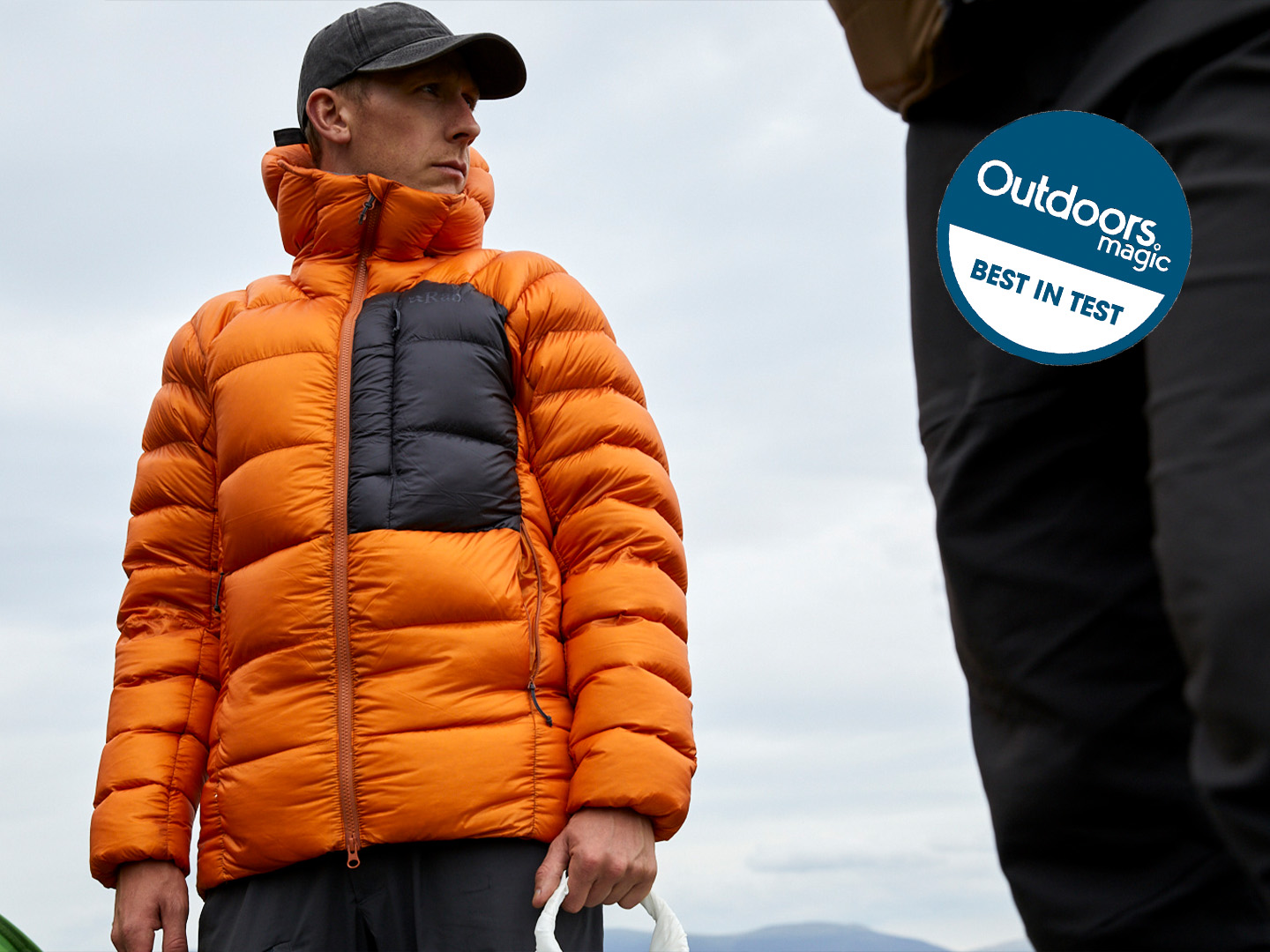
Price: £294 (sale)
Weight: 537g
Best for: climbing, hiking, backpacking
What we liked: sustainably made, innovative, highly functional
What we didn’t like: outer shell fabric a little on the thin side
Boasting the highest warmth-to-weight ratio in the entire Rab collection, the Rab Mythic Ultra is one seriously well-made jacket that’s designed to insulate in some very cold conditions. We tested this extensively in the Lake District and were blown away by the warmth-to-weight ratio that’s been struck. It felt lofty and warm but it was also very light and very packable. Overall, our team came to the conclusion that it was extremely well made, with impressive materials and attention to detail.
All the design details are there for those who want something to back them up on any alpine missions above the snow line, there are some admirable efforts around sustainability and, well, it just looks pretty smart too. You can expect a bunch of recycled materials, including Pertex’s 100% recycled fabrics on the inside and outside. The down all meets the Responsible Down Standard, and Nikwax’s Hydrophobic Down treatment is applied here to help the fill repel moisture. It’s a solution that’s completely water-based and earth kind.
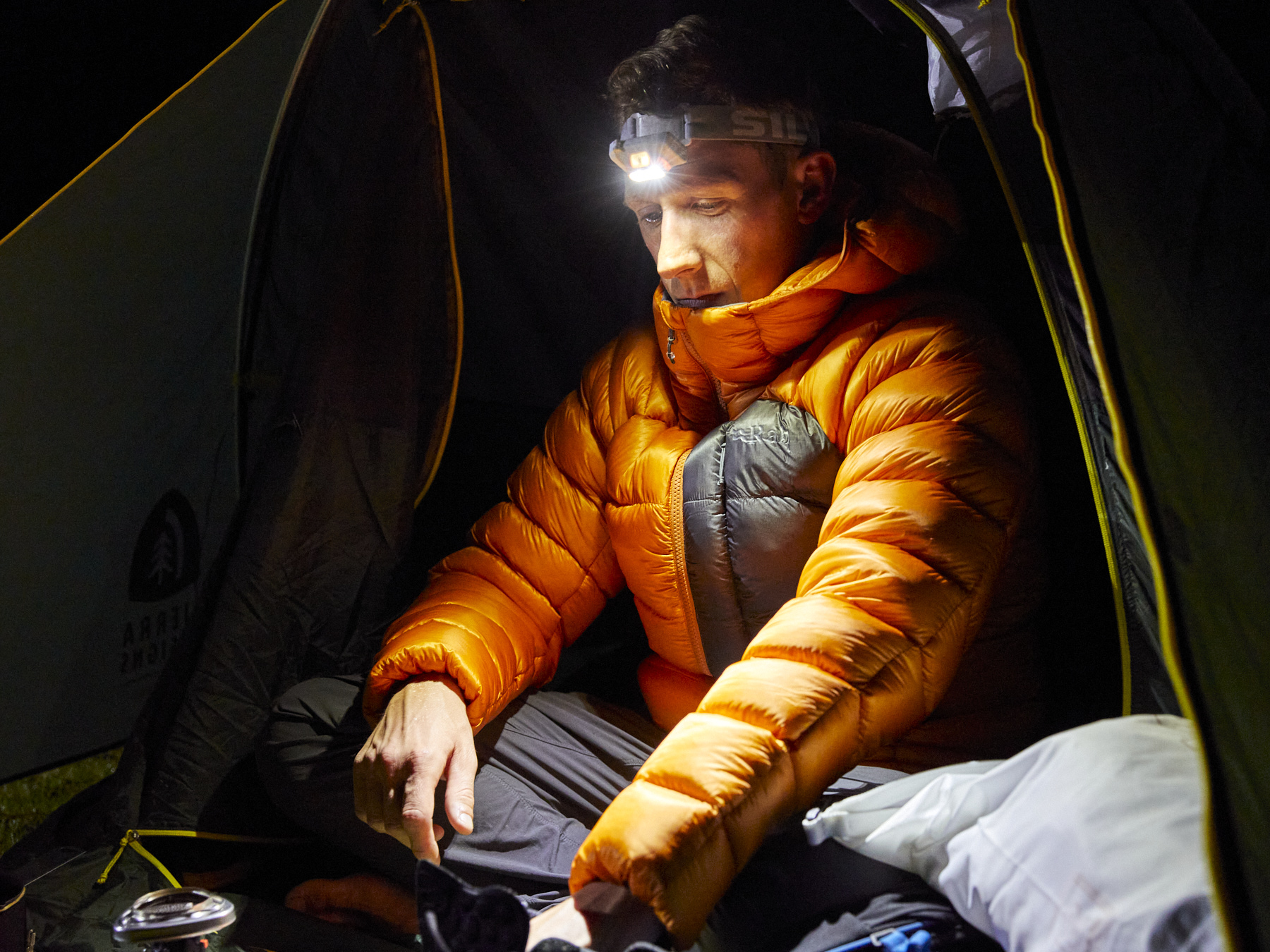
There’s a clever baffle construction too including stitched-through baffles on the arms, where more articulation and dynamic movement is required, and box wall baffles on the body where maximum loft and warmth is wanted. It’s clever stuff and it works excellently. What’s more, the box wall baffles are all offset, further reducing the chance of any cold spots.
Related: Best Waterproof Jackets for Women
In terms of features you’ve got a two-way zip so it can be worn while belaying, it comes with a little stuff sack that can be clipped onto a harness, the hood’s large and adjustable and can be worn over a helmet (or under one) and the arms are articulated so that you can reach up without the hem lifting up over your waist.
Selected for our Green Gear Guide – Here’s our full Rab Mythic Ultra Jacket Review
Buy the Rab Mythic Ultra: £294 (sale) at Ellis-brigham.co.uk
2. Haglöfs Spitz Down Hood
Best Women’s Down Jacket Overall
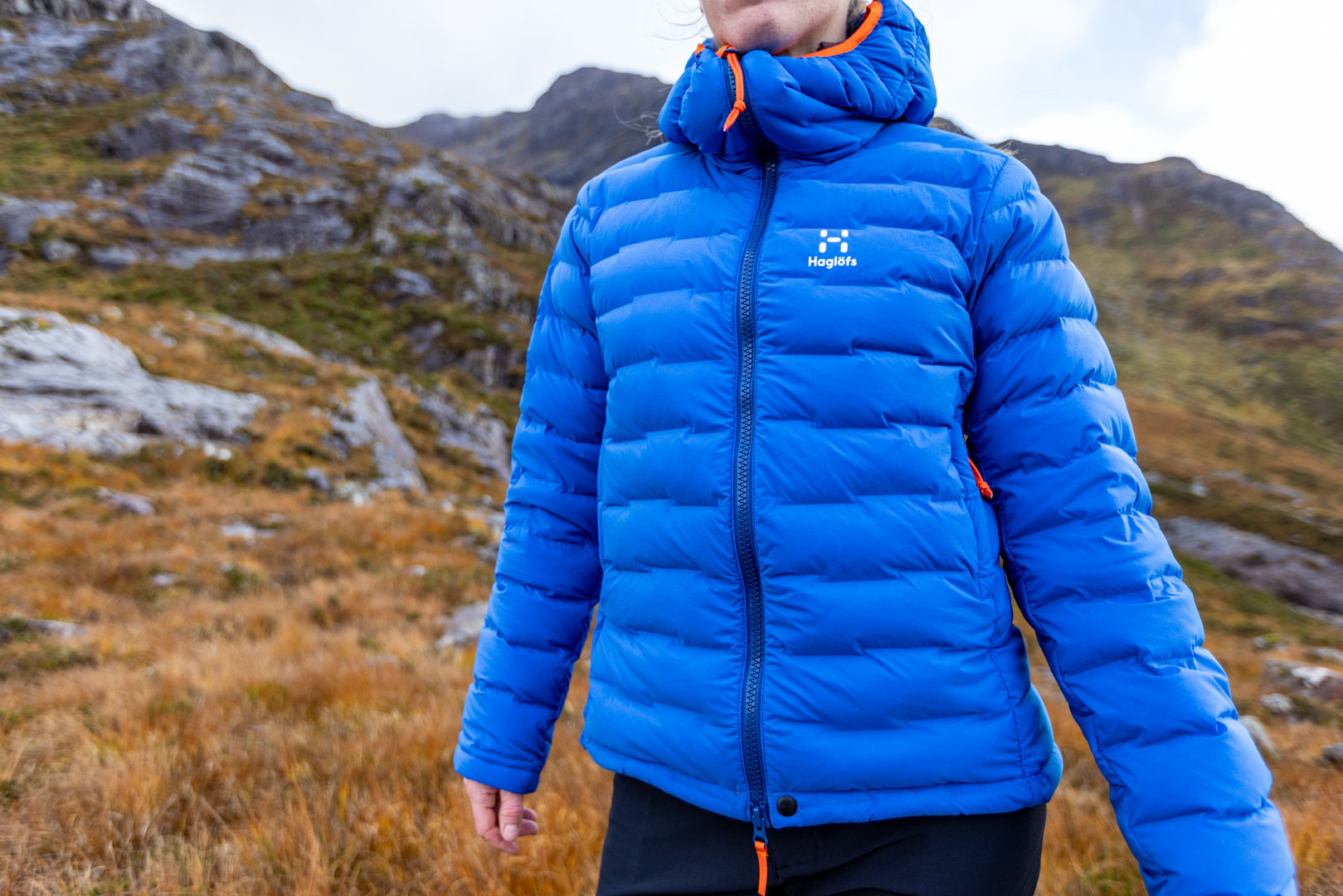
Price: £280
Weight: 554g
Best for: Camping, climbing, unpredictable conditions
What we liked: Hydrophobic down, durable fabric, elasticated hood baffle
What we didn’t like: Bulky, loose sleeves, not the most packable jacket out there.
Our women’s gear tester picked this as her top pick in our test of the best women’s down jackets, deeming it to be a reliable outer layer for cold belays or prolonged exposure to harsh weather.
Our primary tests were carried out on the west coast of Scotland and around Glencoe where we found its water-resistant, hydrophobic down was able to withstand moisture effectively. With an 800 fill-power goose down insulation, it was able to deliver a high level of warmth at a good weight, placing it firmly at the premium end of the spectrum.
Durability is another strong point. The polyester outer fabric has a noticeably robust feel, and after extensive use we found it far less prone to accidental tearing than many comparable down jackets.
Weighing in at 554g, it’s light, though it’s not the lightest option available. We also found that it doesn’t compress down as small as some alternatives.
Read our full Haglöfs Spitz Down Hoody review.
Buy The women’s Haglöfs Spitz Down Hood: £280 (sale) at Alpinetrek.co.uk
3. Forclaz MT100 -5C
This gets our pick as the best budget puffer jacket – though it does not contain down.
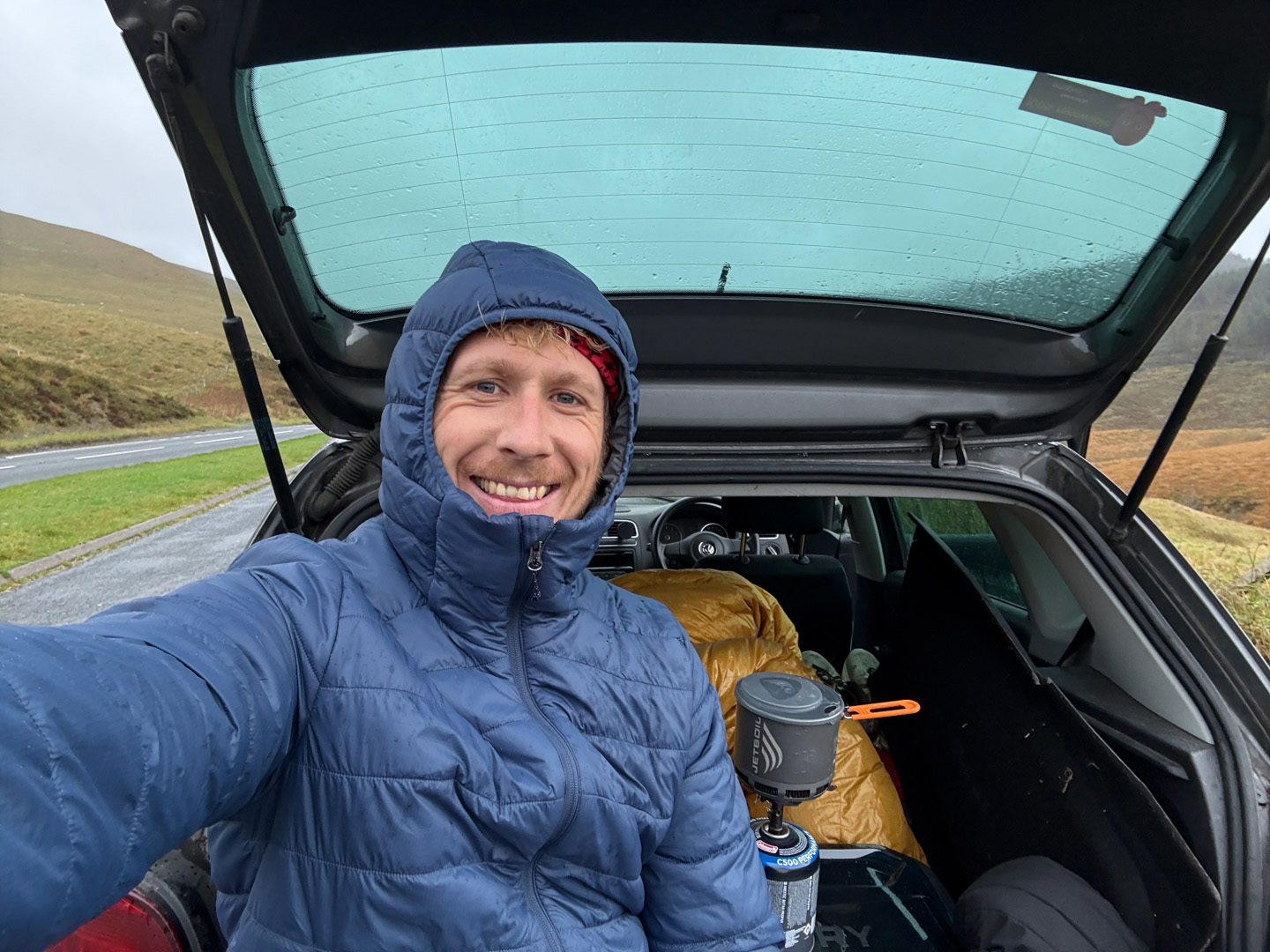
Price: £30 (sale)
Weight: 400g
Best for: Layering
What we liked: Low cost, layers nicely under a hardshell or over a fleece
What we didn’t like: No hood adjustment, slightly long cut, not especially breathable.
This is another jacket in this list that has a synthetic fill and no feathers, but we thought it was worthy of inclusion due to its value and commendable versatility. OM editor Will has tested it out through a UK autumn and found that, while it provided a good amount of warmth by itself, it’s main strength is as an option to use for layering.

“I wore it on a camping trip in the Berwyn Mountains earlier this October,” said Will. “Temperatures dipped close to freezing overnight, and while it wasn’t enough on its own for sitting outside my tent for some stargazing, it did the job when paired with a hardshell to keep out the biting wind.”
He was also impressed by its wet weather ability. It’s not waterproof, but it’s able to continue providing insulation, even when it’s wet. “If you’re after something high-tech and alpine-ready, this isn’t it,” added Will. “But if you want an affordable, effective insulator for the UK’s damp, unpredictable climate, you’ll be pleasantly surprised by how well this performs.”
Read our full Forclaz MT100 review.
Buy The Forclaz MT100 -5°C Trekking Jacket: £30 (sale) at Decathlon.co.uk
4. Haglöfs LIM Down Jacket
Picked as the best ultralight down jacket in our tests
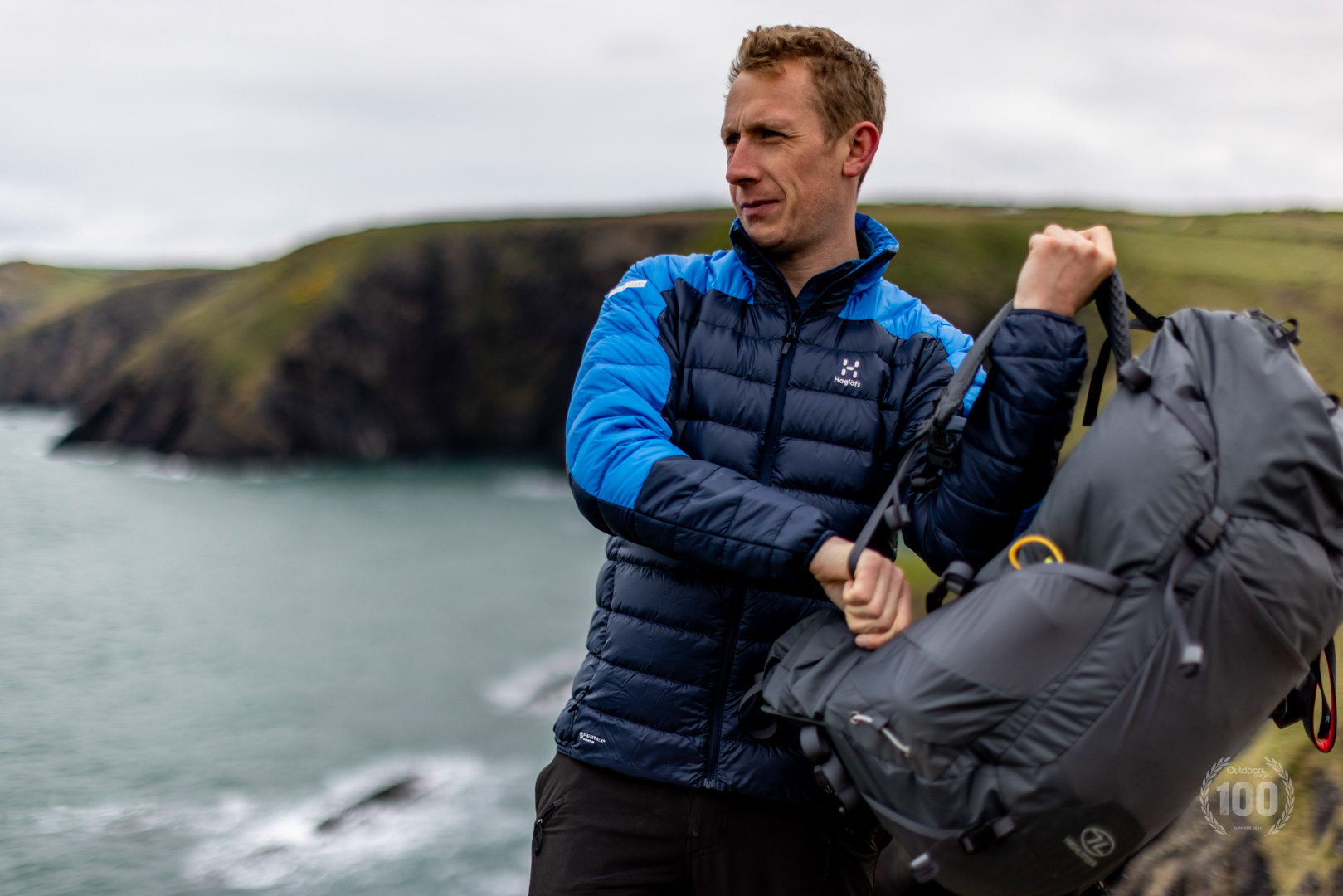
Price: £175 (sale)
Weight: 250g
Best for: three-season hiking and for ultra races
What we liked: lightweight, packable, water resistant down
What we didn’t like: main zip feels a little flimsy
This is a simple, no-frills down jacket that looks good and does what you need it to do. It’s not warm enough to be used as your main layer during winter but it serves really well as that option to carry on any three-season adventures when you want something for a bit of warmth on those early morning starts, during those sandwich summit stops or on evening wild camps during summer.
The down it uses has an 800 fill power – that’s an above average rating – and it also has a hydrophobic treatment to ensure the down stays lofty and able to insulate even when it gets wet. Haglöfs say that it can face up to 10,000 minutes of exposure to rain before the down flattens.
“I’ve found this excellent for ultra running,” said our tester. “It’s the kind of layer that you can cram into your running pack either for use during emergencies or simply for when you stop to refuel. It also has made for a good option for summer wild camps, or for throwing on while stopping on a windy summit.”
Selected for our Outdoor 100 list – read our full Haglöfs LIM Down review.
Buy the Haglofs LIM Down Jacket: £175 (sale) at Haglofs.com
5. Passenger Ashland
The best everyday wear down jacket – and the best anorak we’ve tested
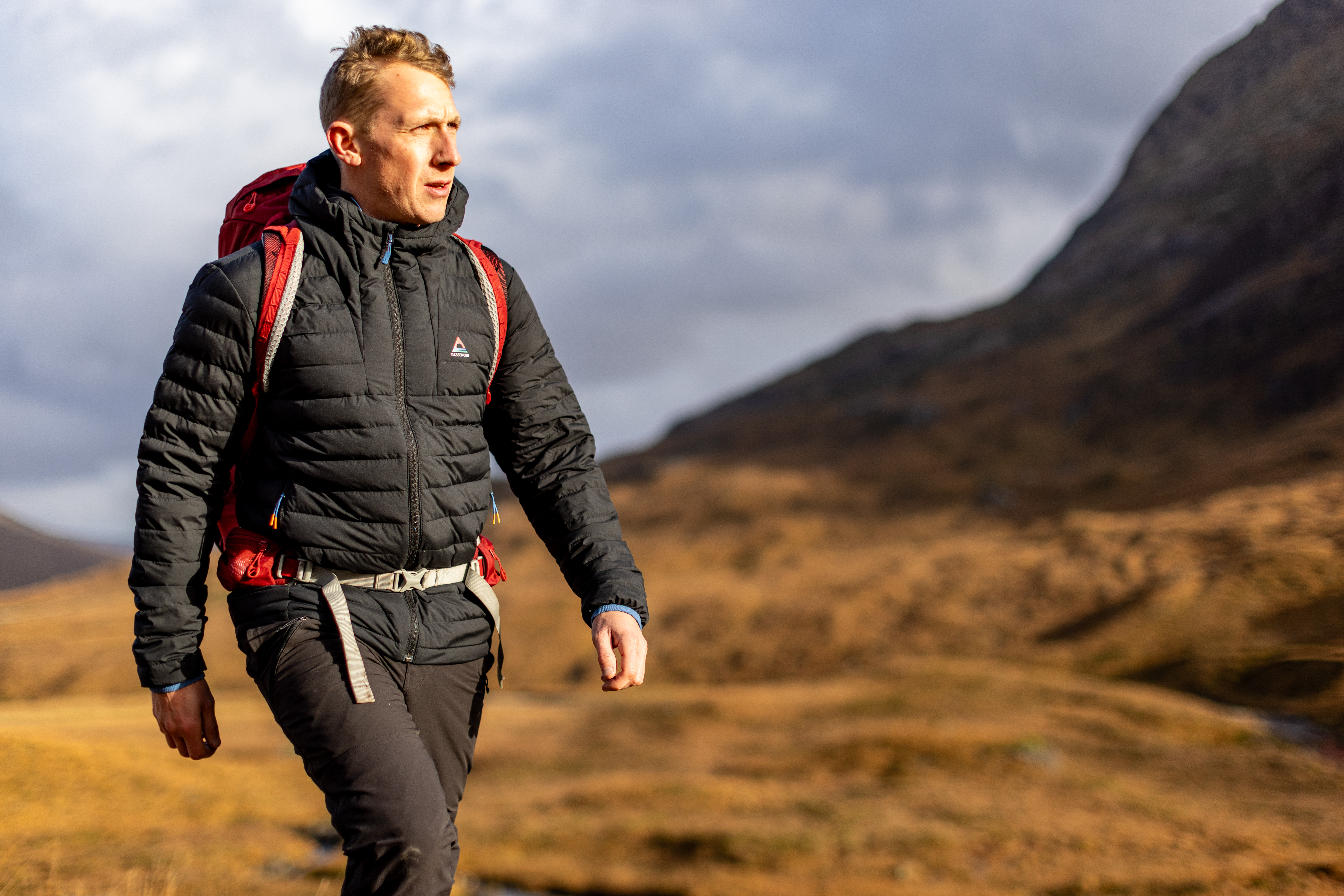
Price: £180
Weight: 400g
Best for: summer camps, casual use
What we liked: durable shell, good sustainability credentials
What we didn’t like: not ideal for layering underneath
While this is not quite as technical as some of the down jackets in this round up, it’s still a reliable insulator and, from our experience using it, it’s warm, durable and functional. One factor that stood out during our tests was the durability of its shell fabric. This stood up to all our tests, shrugging off branches and withstanding the abrasive straps of a heavily loaded backpack.
We also admire the sustainability ethos of Passenger, who plant a tree for every product they sell. They’ve used 100% recycled fabrics for the shell and liner here, while the down is responsibly sourced and fully traceable.
Overall, it’s not really one for gnarly mountain conditions, but it’s a nice jacket for casual wear and for warmer camping adventures in summer.
Read our full Passenger Ashland review.
Buy the Passenger Ashland: £180 at Passenger-clothing.com
6. Helly Hansen Odin Everdown Hooded Jacket
Our choice as the best down jacket for premium comfort.
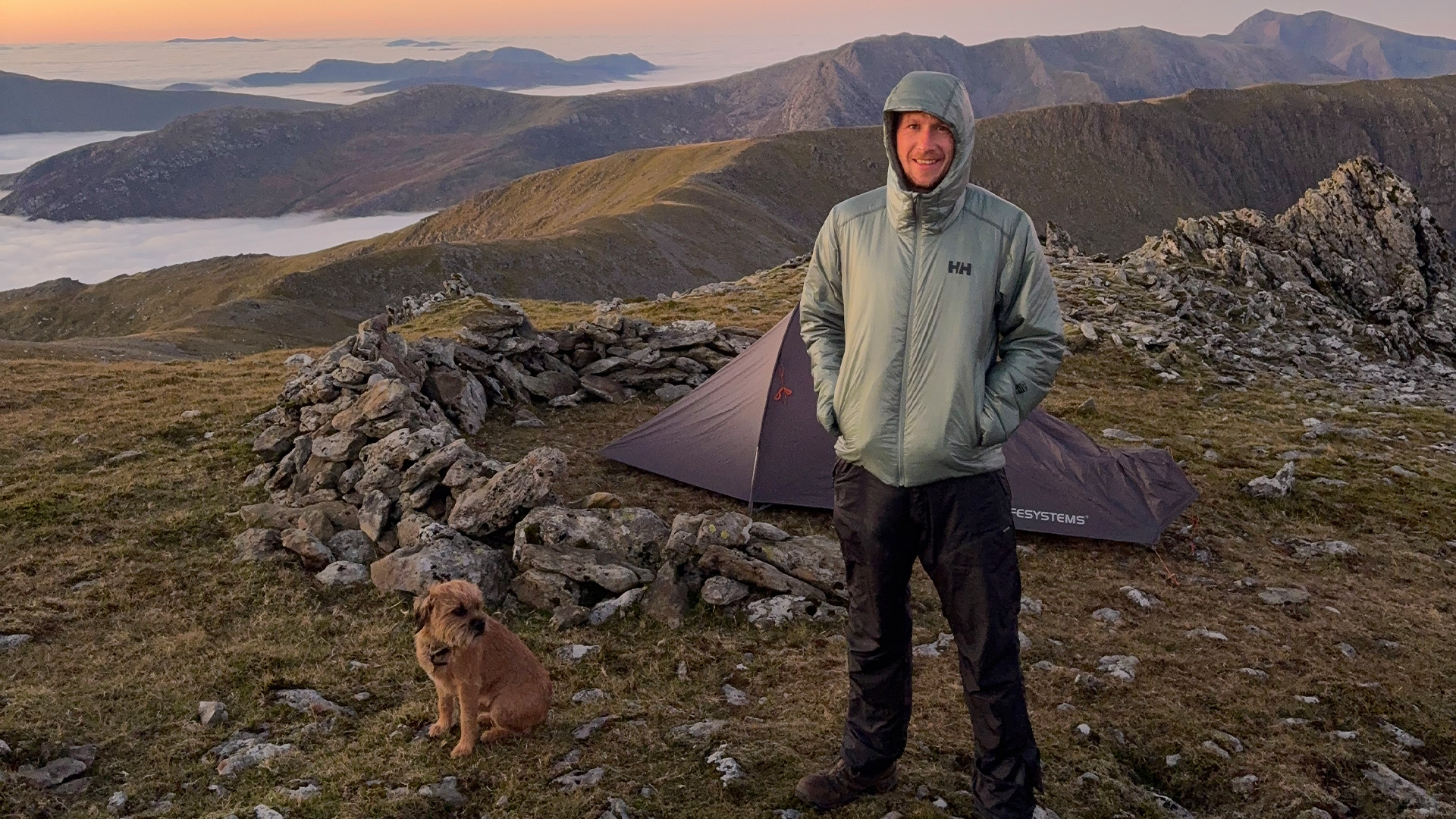
Price: £280
Weight: 350g
Best for: Mountain days when you’re moving but still need genuine insulation
What we liked: Excellent warmth-to-weight ratio, very comfortable, impressively packable
What we didn’t like: Short cut won’t suit everyone, no hood adjustment, pockets aren’t secure
The Odin Everdown Hooded Jacket is Helly Hansen’s take on an active down jacket. It’s light, packable and designed for mountain movement rather than static belay warmth.
It uses sheet-style down insulation (85% goose down, 15% polyester) instead of traditional baffles and this gives it a smoother, more wind-resistant outer with fewer cold spots. Despite weighing just 350g, it delivers a surprising amount of warmth and packs down to about the size of a pint glass.
Outdoors Magic’s Will tested it through some wild mountain weather, including through Storm Amy and on a freezing campout high on Carnedd Llewelyn. “It’s very snug and comfortable to wear,” he said. “I stayed warm watching the sunset, even in sub-zero windchill.”
He did, however, find the fit unusually short at the front: “It’s clearly cut for alpine layering or wearing under a shell – but that might suit some people perfectly.” Small issues include the hand pockets that can’t be closed, and a lack of hood adjustment. Even so, the Everdown impressed with its warmth, comfort and minimal bulk. It’s a capable, technical insulator that feels good on the go.
Read our full Helly Hansen Odin Everdown Jacket review.
Buy The Helly Hansen Odin Everdown: £280 at Hellyhansen.com

